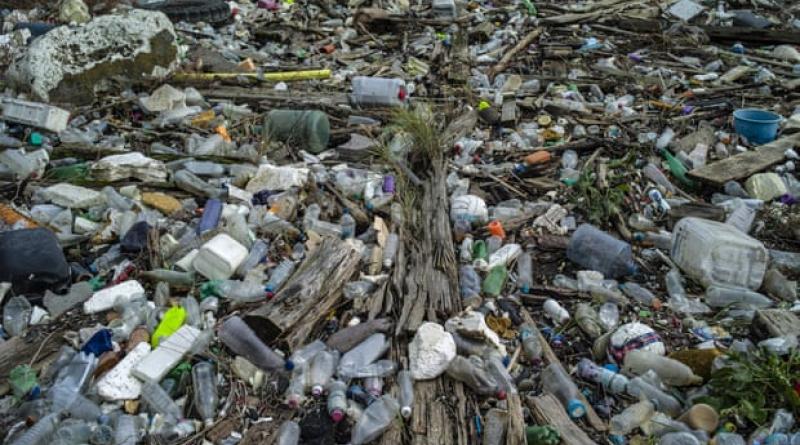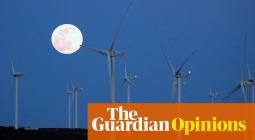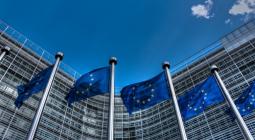"Coronavirus profiteers' condemned as polluters gain bailout billions

Leaders condemn backing of global sectors that disregard green economy goals.
Polluting industries around the world are using the coronavirus pandemic to gain billions of dollars in bailouts and to weaken and delay environmental protections.
The moves by the fossil fuel, motor, aviation, farming, plastic and timber sectors are described as dangerous and irresponsible by senior figures. Environmental campaigners describe some participants in these industries as “coronavirus profiteers”.
Economic and energy leaders say the unprecedented sums of money being committed to the global recovery are a historic opportunity to tackle the climate crisis and create a safer, more resilient, world. However, such action has been lacking to date, they warn.
Fatih Birol, executive director of the International Energy Agency, said: “When I look at different parts of the world I have not seen yet a major emphasis on clean-energy technologies.” He warned of mistakes similar to those made after the 2008 financial crisis when stimulus packages led to the biggest leap in carbon emissions in 50 years, four times greater than the reduction initially seen.
“If we put the money in the right place, we can manage the [climate] risk, and have a much more modern, cleaner and safer energy system,” Birol told the Guardian. “But if you put the money in the wrong place we will lock ourselves in a dirtier energy system, making it much more difficult to reach our climate targets.”
Rachel Kyte, at Tufts University, US, a former UN special representative for energy and former World Bank Group vice president, said: “Covid-19 puts our economies at a fork in the road. Using public money to bail out firms that will take us on the road which doesn’t accelerate decarbonisation and doesn’t address inequality is not just unaffordable, it’s dangerous.”
Unlike in the US, where the Trump administration has rolled back environmental protections, the EU has backed a green recovery.
Frans Timmermans, executive vice-president for the Green Deal at the European commission, said: “[Tackling the Covid-19 emergency] cannot and will not throw us off course in our efforts to tackle the climate crisis that still looms large as one of humanity’s most daunting challenges.”
“Bailouts should all be linked with clear conditions that the money will be used for a green economy and a green society. The very least that should be done is to ascertain that none of our commitments are used to harm our climate goals.”
The nature of the global economic recovery is being shaped with meetings this week of G20 finance ministers and central bankers, and by the World Bank and IMF. Much of the initial financial aid from governments was rescue packages to prevent immediate economic collapse, but further huge sums are expected to build recovery.
Laurence Tubiana, CEO of the European Climate Foundation, who was France’s climate change ambassador when the global Paris climate deal was sealed in 2015, said: “We know speed is essential with so many lives and livelihoods at stake, but it would be irresponsible to knowingly lock in more human suffering by enabling more pollution.”
Lord Stern, a climate economist at the London School of Economics, UK, said: “The nature and shape of this recovery will determine our future. It is crucial [it] does not lock in our exposure to the great risks of climate change.” But he said it was important to distinguish between rescue packages and recovery packages and not, for example, to withhold support for the workers in high-carbon sectors.
Michael Liebrich, founder of Bloomberg New Energy Finance, said the systems of the past were already failing the world before Covid-19. “As governments again load the helicopters with money to dump on the global economy … no fossil fuel-based businesses should be bailed out without committing to science-based, net-zero targets. No money should go to industries that have been living high on the hog on fossil fuel subsidies and tax loopholes, like the airline industry, unless they accept structural reform.”
Ben Backwell, CEO at the Global Wind Energy Council, said some governments had extended commissioning deadlines for new wind farms, including those of India, Germany and Greece. “But so far no government has explicitly included stimulus packages specific to the wind and other renewable sectors. Much diplomatic effort went into brokering the OPEC+ deal to stabilise oil prices but the discussion needs to move on now to ensuring that renewable energy is at the centre of economic recovery plans.”
The course of the recovery has yet to be decided, according to Tom Burke, chair of the E3G thinktank. “I think it is too soon to say that the battle for funds to rebuild our economy is being won by the polluting sectors of business, especially on climate change. There are some strong political forces already pushing hard to make it a recovery that is green.”
Timmermans said a sustainable society was the only way to create lasting growth and jobs. Birol, who highlighted energy efficiency for buildings and battery and hydrogen technologies as important goals, also said that the current low oil prices were an opportunity to abolish $400bn a year of consumer fossil fuel subsidies, boosting government budgets.
The UN secretary general, António Guterres, was clear about the need to rebuild a different global economy. “Everything we do during and after this crisis must be with a strong focus on building more equal, inclusive and sustainable economies, and societies that are more resilient in the face of pandemics, climate change, and the many other global challenges we face.”
17 April 2020
The Guardian





